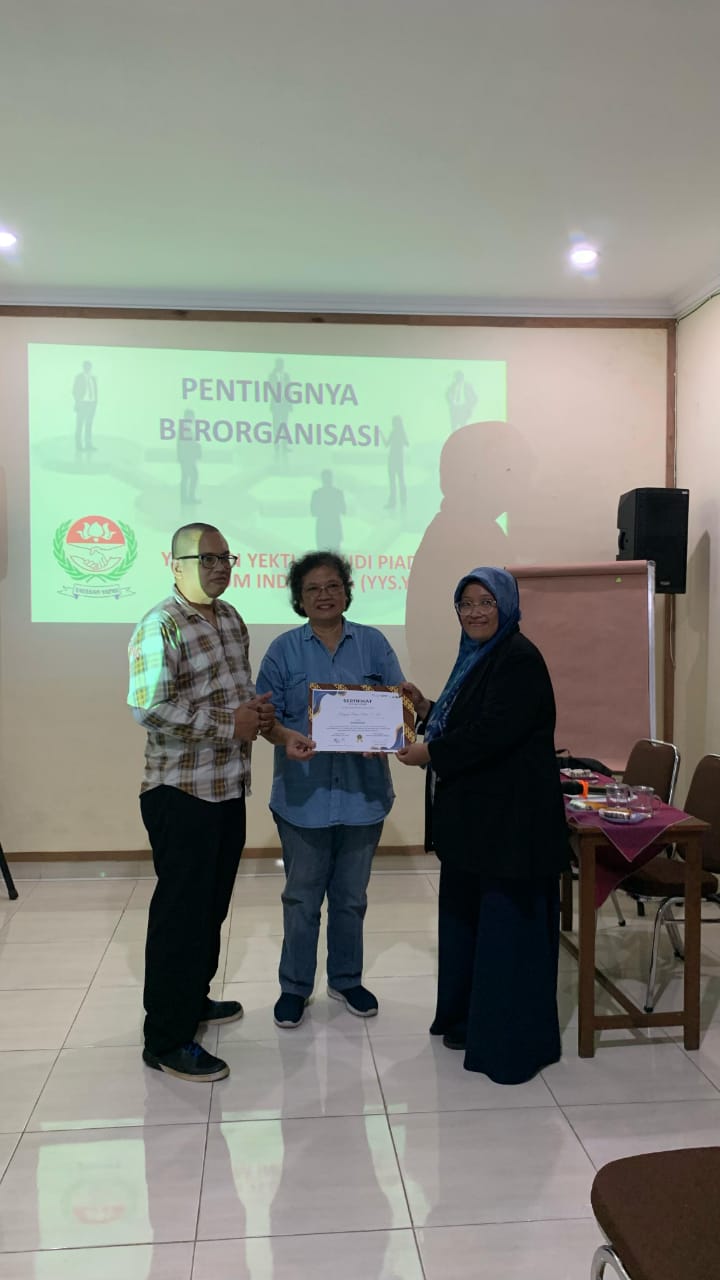People with psychosocial disability face a number of issues when they want to speak – e.g. social stigma (fear of being labelled in a negative way), lack of public understanding, structural discrimination, and lack of space for public participation. Yet, people with psychosocial disability need to be aware that it is essential to have the courage to speak, because by speaking, they become independent subjects to defend their rights.
Why is it important to have the courage to speak? It is critical to eliminate stigma, to assert their rights as citizens, to build solidarity, and to initiate public policy changes. This is the key message of the director of Yayasan YAPHI, Haryati Panca Putri, S. H, as a resource person and facilitator at a self-reliant training for people with mental disability organised by Indonesian Schizophrenia-Aware Community (Komunitas Peduli Skizofrenia Indonesia or KPSI Solo Raya in collaboration with Sigab GOOD Program GOOD, at Anawin Hall, Yayasan Yaphi, on Friday (16/5). The training attendance includes 35 schizophrenia survivors and 10 volunteers.
Courage to speak is critical in advocacy, whether in a personal context by sharing life experience, and in a communal/organisational context through campaign. Advocacy may be done via petition or public hearing, or through social media such as WhatsApp, Instagram, blog, podcast, YouTube, Twitter, Facebook, and other media.
Haryati Panca Putri highlights that people with mental psychosocial disability require supports, such as: access to mental health services, inclusive and supportive environment, training (i.e. courage to speak and communication), and family and community involvement. "Then, what can community do?" asks Putri.
Community can listen without making any judgement, offer space for people with disability to speak, get education on disability, as well as support inclusive advocacy.
Participants pose a number of questions during question and answer time, including how to nurture courage when people with mental psychosocial disability come face-to-face with law, i.e. as witnesses in a criminal court.
A bipolar participant asks an interesting question with regards to the painful experience of while interaction in social media. This participant was bombarded with nasty words from social media users with regards to stigma, which could fall under the category of online gender-based violence. The chairperson of KPSI Solo Raya, Fithi Setya Marwati, S.E, M.M, PhD then maps out the training needs, including wisdom in using social media and in conducting advocacy in order to prevent online fraud, literacy with regards to online gambling and online loan. (Ast)












